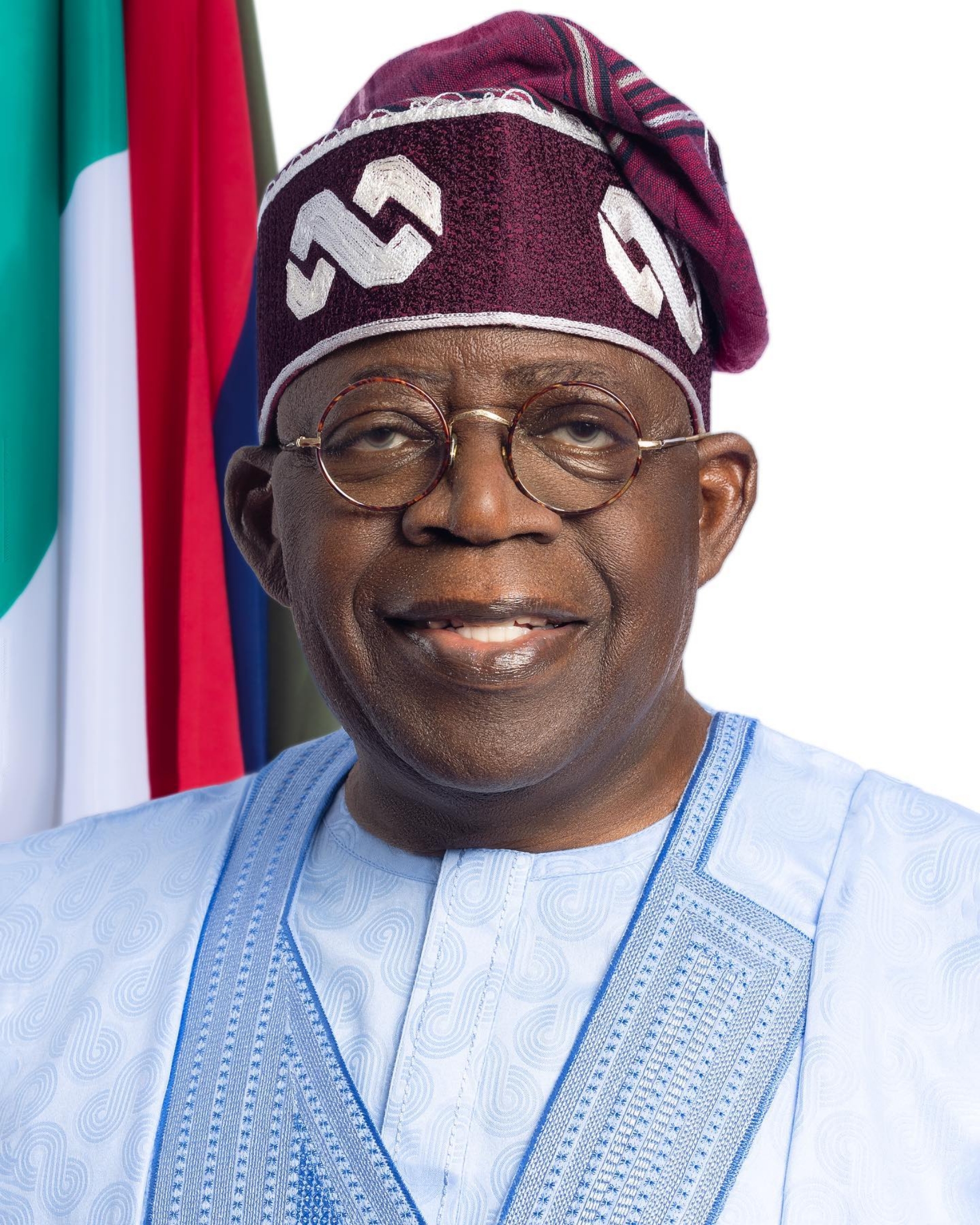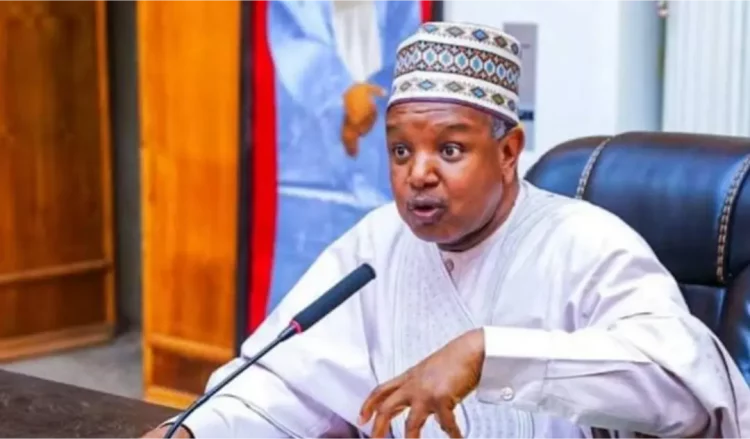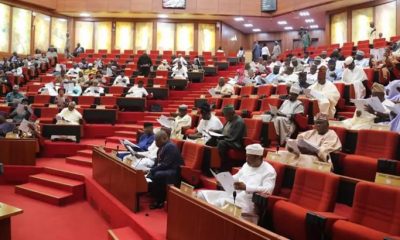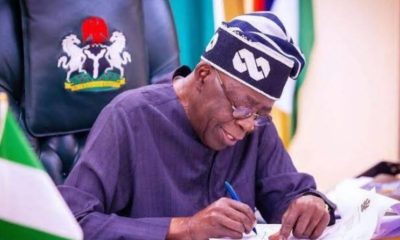Economy
Students loan programme takes off January 2024 – Tinubu

President Bola Tinubu has declared that the students loan programme would commence full operation in January 2024.
Tinubu made the announcement at the 29th Economic Summit organised by the Nigerian Economic Summit Group (NESG) in partnership with the Federal Ministry of Budget and Economic Planning, in Abuja on Monday.
The president assured Nigerians that government-owned tertiary institutions would no longer go on strike.
He admitted that Nigerians were feeling the short-term negative impact of his reforms but promised that everyone would soon enjoy the benefits.
The president also assured that Nigeria would honour all future foreign exchange contracts.
“All foreign exchange contracts will be honoured by this government, I assure you we have a line of sight to the foreign exchange we need to refloat this economy and we will get it,” he said.
Tinubu said that as the naira continued its free fall at the parallel market, he would clear foreign exchange contracts backlog discouraging investors’ confidence.
The Chairman of the NESG, Mr Niyi Yusuf, said that with more than 133 million multidimensionally poor Nigerians, there were potentially more risks of stagnation and distress if a low-growth and low-investment era persisted.
“The future of the Nigerian child is at stake, across every geopolitical zone, the Nigerian ageing population is also at risk, there is a high prospect that a retiree’s savings and investments will be eroded entirely just a few years into the first or second decade of retirement.
“Our high fertility rate which is driving a much higher population growth than economic growth poses a risk of an unproductive population bulge, with an unmanageable social infrastructure cost and burden for supporting our children’s health, nutrition and education,” Yusuf said.
He said that Nigeria’s Multi- trillion dollar economy would be viable within a decade of serious reform, consistent economic action and deliberate institutional reforms.
Yusuf said, “Our nation stands at a critical precipice, and our challenges demand immediate, concerted efforts. We need to act now with a shared sense of urgency.
“The Multi-Trillion Dollar Economy growth trajectory will urgently need certain actions including.
“A macroeconomic stabilisation programme supported by an aggressively scaled national security effort to halt all forms of syndicated and organised crime around crude oil and solid minerals.
“A Made-in-Nigeria Agenda. To Make-in-Nigeria, two strategic drivers require urgent investment: a national emergency energisation programme.
“This is to enable access to stable, predictable and affordable electricity supply and a national infrastructure corridor development programme – an efficient and integrated transport and logistics network that links value chains to sea, air and land ports.”
According to him, a national job creation plan that drives the creation of a huge volume of high-quality jobs and a revised national assets optimisation plan that ensures critical national assets are fully utilized and productive.
Yusuf said, “This is if we must sell, concession or commercialise some assets to achieve the desired level of productivity.
“A national competitiveness plan that defines the sectors where we have a competitive advantage, export expansion targets to achieve a trade surplus and a positive balance of payment.”
He said that the government needed a new compact with the Nigerian child that guaranteed their promising, secure and safe future.
“We also need a revitalised national security policy and strategy to protect lives, properties and our national assets,” he said.
Yusuf said that achieving a multi-trillion dollar economy would require a paradigm shift, big, bold actions, tough choices and significant sacrifices by all of us, saying, “We all are witnesses to the outcomes of delayed and deferred action.
“The chairman said that NESG was ready to support the government to model the tough choices required and the associated palliative measures to ameliorate the short-term impact on the populace.
Yusuf said that the new administration had unveiled eight priorities of government which focus on economic growth and job creation, ending poverty, access to capital, inclusivity, food security, national security, fairness and the rule of law and anti-corruption stance.
“This provides a strategic perspective of the Government’s grasp of both the issues and solutions to the national crises and also for the transformation of the Nigerian economy into one that is competitive, sustainable, inclusive and open.
“This is possible only if public and private sector leaders work together towards the same national vision,”he said.
Yusuf said that this year’s summit had been calibrated as a burning platform to answer the question of the essential pillars of economic transformation that would get us to the future envisaged by the government.
“The need for urgent strategic shifts that impact the ease and cost of doing business within a relatively short period is a matter of existential threat to the survival of enterprises and entrepreneurs,” he said.
Also, In the last eight years, the NESG had kept faith with the Government and Nigerians as a dialogue partner, watchdog, connector and intervener.
Yusuf expressed gratitude to the Federal Government, members of the private and public sector partners and the international community for their dedication, participation, and belief in the realisation of a stable, sustainable, secure, inclusive, and economically prosperous Nigeria.
(NAN)


























